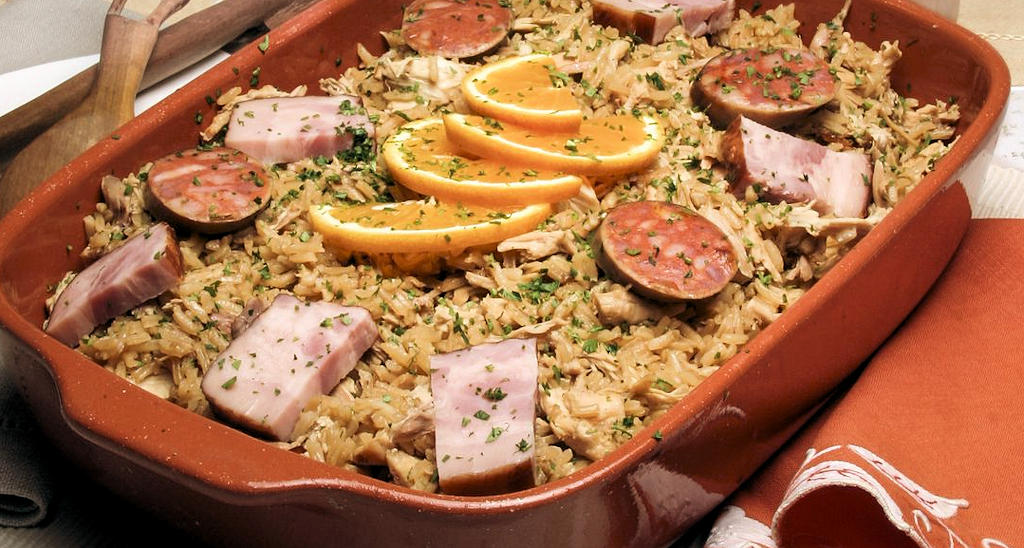As the mid-20th century dawned, a culinary revolution swept across Portugal, and Arroz de Pato gained popularity as an enticing option in burgeoning restaurants. Its irresistible allure also led to its cherished status as a beloved family dish, embraced for Sunday lunches and cherished celebrations. Today, Arroz de Pato thrives across Portugal, albeit with regional variations that reflect the diversity of the country's culinary landscape. In the sun-soaked region of Alentejo, renowned for its sprawling cork tree groves, verdant olive orchards, and delectable sheep cheese, a refreshing twist is occasionally introduced. Slices or zest of oranges are added, imparting a delightful freshness and subtle acidity to the dish.
Beyond its extraordinary flavors, Arroz de Pato emerges as a profound embodiment of Portugal's identity and culinary tapestry. It encapsulates the quintessence of Portuguese gastronomy, spotlighting signature ingredients and techniques such as rice, duck, chouriço, bay leaf, garlic, wine, clay pots, and the traditional art of oven baking.
Lisbon.vip Recommends
Duck, held in high regard as a cherished meat in Portugal since ancient times, exudes an irresistible richness and texture that harmonizes splendidly with rice and an array of complementary ingredients. Often associated with indulgence and merriment, duck is considered a delicacy, preserved for moments of grandeur and special celebrations. A cultural legend connects the consumption of duck in Portugal with Saint Martin of Tours, a Hungarian-born figure who ascended to the bishopric of Tours in France. According to lore, the saint, avoiding ordination, sought refuge amidst a flock of geese, only to be betrayed by their boisterous honks. Consequently, Saint Martin declared that geese should be served on his feast day, the 11th of November, coinciding with the advent of winter and the harvest season. In Portugal, this tradition transformed into the consumption of duck instead of geese, thus forever intertwining the succulent fowl with Saint Martin's Day festivities.
Arroz de Pato stands as a testament to Portugal's culinary diversity and unyielding creativity. A dish that fuses influences spanning Roman, Moorish, Jewish, and Christian cultures, it reflects the nation's geographical tapestry, embodying the essence of its rivers, wetlands, forests, and vineyards. The dish intertwines traditions and festive celebrations, finding its place on tables during Saint Martin's Day, Christmas, and Easter, summoning families and friends to gather, share nourishment, and weave tales. Arroz de Pato transcends its gastronomic identity to become an emblematic Portuguese treasure, a culinary masterpiece embodying the essence of Portugal itself.



